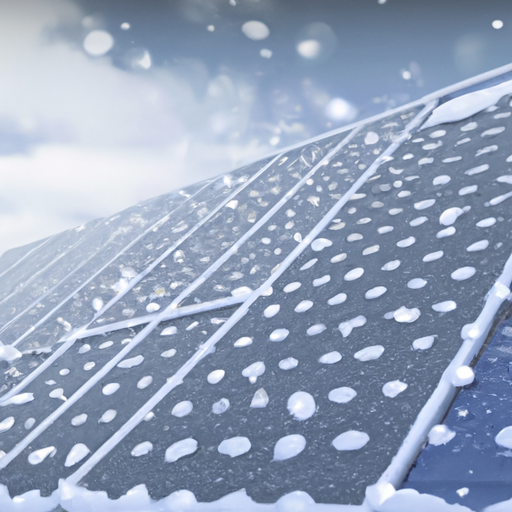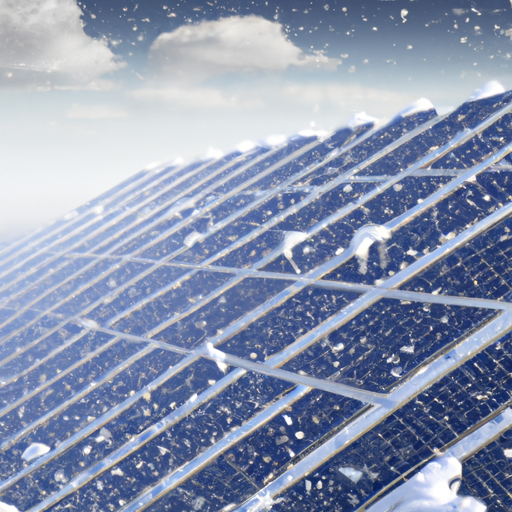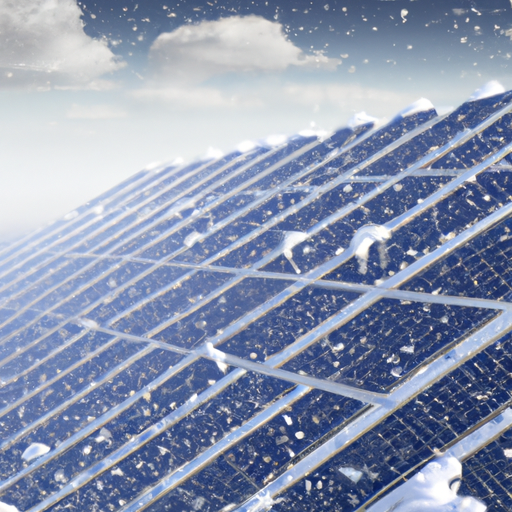Do solar panels work in winter? It’s a question many homeowners and DIY enthusiasts ask, and we’re here to give you the answers. In our upcoming article, we’ll explore the functionality of solar panels during the winter months. We’ll delve into the science behind how solar panels work in cold temperatures, discuss any potential challenges they may face, and provide tips and strategies to optimize their performance. Whether you’re planning to install solar panels or already have them, this article will equip you with the knowledge you need to make the most of your solar investment during the winter season. Stay tuned for an informative and engaging read!

Understanding Solar Panel Functionality
Solar panels, also known as photovoltaic (PV) panels, are designed to convert sunlight into electricity using semiconductor materials. When sunlight hits the panels, the photons in the light energy knock electrons loose from their atoms, generating an electrical current.
Impact of Winter Conditions on Solar Panels
While it is true that solar panels rely on sunlight to generate electricity, they can still work efficiently during the winter months. However, the performance of solar panels can be affected by certain winter conditions.
Effects of Temperature on Solar Panel Performance
Solar panels actually perform more efficiently at cooler temperatures. Contrary to what some may believe, freezing temperatures do not harm the panels. In fact, the conductivity of electricity improves in colder weather, enabling solar panels to generate electricity more effectively.
However, extreme temperature swings can cause stress on the panels, which could lead to micro cracks or other damage over time. It is important to ensure that your solar panels are installed correctly to withstand such temperature fluctuations.
Importance of Sunlight in Solar Panel Operation
While solar panels can still generate electricity in overcast or cloudy conditions, their efficiency is significantly reduced compared to direct sunlight. However, even on a cloudy winter day, sunlight still filters through the clouds, providing enough energy for panels to generate electricity.
It is also important to note that the angle and orientation of solar panels play a crucial role in their performance. In winter, the sun is lower in the sky, so adjusting the tilt of the panels to maximize exposure to the sun’s rays is essential for optimal performance.

Snow and Ice Removal for Optimal Solar Panel Efficiency
One challenge that arises during the winter is the accumulation of snow and ice on solar panels. While panels are designed to withstand the weight of snow, the coverage can significantly impact their ability to generate electricity.
To ensure optimal efficiency, it is recommended to remove snow and ice from your panels. However, it is important to do so safely and carefully to avoid causing damage. Using a long-handled broom or a snow rake specifically designed for solar panels can help safely clear the snow. Avoid using sharp objects or abrasive materials that could scratch or damage the panels.
Benefits of Winter Solar Panel Installation
Installing solar panels during the winter months can offer certain advantages. Since the demand for solar installations is generally lower during winter, you may find that you can secure faster installation times and potentially better deals from installers.
Additionally, by installing solar panels in the winter, you can start generating electricity and saving on your energy bills sooner. In some cases, you may even produce excess electricity that can be fed back into the grid and earn you credits.
Preventive Measures for Winter Maintenance
To ensure the efficiency of your solar panels during the winter season, it is essential to take preventive measures and perform regular maintenance.
One important aspect is keeping the panels clean and free from debris. Fallen leaves, bird droppings, and other debris can obstruct sunlight and hinder the panels’ ability to generate electricity. Regularly inspect your panels and gently clean them with a soft brush or sponge and mild detergent if necessary.
It is also crucial to monitor the performance of your solar system during the winter months. Keep an eye on your energy production levels and consult with your installer or a solar professional if you notice any significant drops in output.
Considerations for Winter Solar Panel Efficiency
When considering solar panel efficiency during winter, it’s important to remember that every location is unique. Factors such as geographical location, weather patterns, and the specific characteristics of your solar installation can affect performance.
For those in regions with harsh winter conditions, it may be useful to invest in additional technologies to enhance solar panel efficiency. This could include devices such as solar trackers that adjust the angle of the panels throughout the day to maximize exposure to sunlight.
It is also worth considering the installation of micro-inverters or power optimizers, which can help maximize energy production in situations where shading or panel mismatch affects performance.
Winter Solar Panel Usage Statistics
Studies have shown that solar panels can still generate a significant amount of electricity during the winter months. In some regions, winter output can be as high as 70-90% of what is produced during the summer months.
In fact, solar panels in colder climates can often generate electricity more efficiently due to the reflection of sunlight off snow-covered surfaces. This can create a “double exposure” effect, where the panels receive direct sunlight and reflected sunlight, boosting their overall performance.
Conclusion
So, do solar panels work in winter? Absolutely! While winter conditions can present certain challenges, solar panels remain an effective and efficient solution for generating electricity throughout the year.
By understanding the functionality of solar panels, considering the impact of winter conditions, and implementing preventive maintenance measures, you can ensure that your solar system operates optimally during the winter months.
With winter solar panel installation offering benefits such as quicker installation times, potential cost savings, and the ability to start generating electricity sooner, there has never been a better time to embrace solar energy and take control of your energy future.
At HomeSolarDIY, we are here to guide and support you on your solar journey. From understanding the basics to implementing advanced solar solutions, our resources and community are dedicated to making your transition to solar energy a seamless and rewarding experience. Join us today and let’s make a green, sustainable future together!

